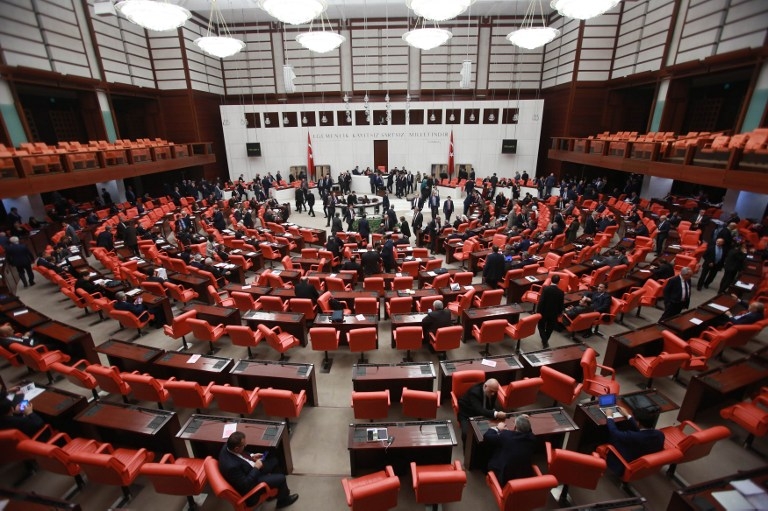Turkish parliament backs bill to strengthen Erdogan's powers

Turkey's parliament early on Saturday backed a controversial bill to dramatically expand the powers of President Recep Tayyip Erdogan.
The parliament in a late-night session approved the seven final sections of the 18-article constitution. In a final vote, the ruling Justice and Development Party (AKP) had 339 "yes" votes for the bill as a whole.
The party needed 330 votes, a three-fifths majority, for the adoption of the constitutional change and to send it to a referendum for final approval.
Earlier this week, parliament approved the two final sections of the 18-article new constitution after a week of debating that began on 9 January and included sessions that often lasted late into the night.
The proposed changes, which will create an executive presidency for the first time in modern Turkey, are controversial and far-reaching.
The president will have the power to appoint and fire ministers, while the post of prime minister will be abolished for the first time in Turkey's history.
Instead, there will a vice president, or possibly several.
The current constitution, adopted in 1982 in the wake of the 1980 military coup, guarantees independence of the courts from an "organ, authority and office".
But the draft constitution would allow the president to directly intervene in the judiciary, which Erdogan has accused of being influenced by supporters of his ally-turned-foe, the Pennsylvania-based Islamic preacher Fethullah Gulen, who is blamed for the failed 15 July coup in 2016.
With Turkey already under a state of emergency for almost six months after the 15 July failed coup, the changes will also widen the scope of conditions in which the president can declare an emergency.
Parliamentary elections and presidential ballots will be held simultaneously, with the draft giving 3 November 2019 as the next poll date.
Stay informed with MEE's newsletters
Sign up to get the latest alerts, insights and analysis, starting with Turkey Unpacked
Middle East Eye delivers independent and unrivalled coverage and analysis of the Middle East, North Africa and beyond. To learn more about republishing this content and the associated fees, please fill out this form. More about MEE can be found here.




